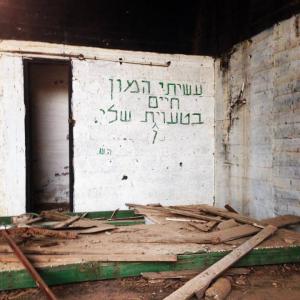 As I announced in my most recent blog of March 15, 2021, I have now accumulated 500 blog posts for the Patheos.com website. This covers perhaps 9 or 10 years of such writing, and encompasses at least 700,000 words of my sometimes lucid but more often opaque prose. I admit freely that I have at one time or another decided that I had said all I had to say, multiple times, and needed to cease my keyboard clacking, thus sparing my reader’s weary attempts to find any value in what I have produced. But somehow, I continue to be moved to write my little essays, and I want to reflect in this one just why that may be the case.
As I announced in my most recent blog of March 15, 2021, I have now accumulated 500 blog posts for the Patheos.com website. This covers perhaps 9 or 10 years of such writing, and encompasses at least 700,000 words of my sometimes lucid but more often opaque prose. I admit freely that I have at one time or another decided that I had said all I had to say, multiple times, and needed to cease my keyboard clacking, thus sparing my reader’s weary attempts to find any value in what I have produced. But somehow, I continue to be moved to write my little essays, and I want to reflect in this one just why that may be the case.
Back in my full-time teaching days, now ended almost 9 years ago, I urged my students in homiletics to be certain, as they ventured out into the world of pastoring/preaching, that they regularly had a chance to communicate with their congregations through writing. “Write a weekly newsletter column,” I commanded. Such a column, I suggested, was to be done as much for oneself as for the congregants. I thought then, and still think now, that a consistent exercise in prose is fine practice for ordering one’s thoughts, a definite aid to the task of preaching, and a superb way of communicating clearly with those in your charge outside of the Sunday pulpit. I, of course, know pastors who do that at least weekly, some of whom are my former students, but I sense that a significant number of pastor/preachers do not avail themselves of this writing opportunity. That is a real shame for the reasons I have just named, as well as for one other: writing is plain fun, and it forces a person to slow down, get off their phone and out of their computer trolling long enough to think about something for a bit of silent time.
Of course, I spent the great bulk of my working life as a scholar, being paid to read and to write as a significant part of the work I had chosen—or that had chosen me. Even if I had not had those tasks as a demand from my professional colleagues, I would have done them anyway, since writing has long been for me a genuine pleasure. I am well aware that for some of you that is not the case; you have found writing to be a chore, a sometimes necessary drudgery you would rather not be saddled with. Much better to head to the local diner, and have some coffee with a member of the Administrative Board or Church Council; now there is real ministry with real people! Still, I urge you to reconsider your chance for written communication, done only by you alone with your computer (or perhaps still with a pen and legal pad?). Quiet thought ordering is a rare privilege, and I know that certain members of your flock will welcome such efforts on your part as you share with them something of your approach to the issues of the day as filtered through your theological self. Not all of them will read what you have written with any care, but there are in every congregation certain members who relish the chance to sit down and read some careful thoughts from their pastor, thoughts structured by time and quiet energy, designed to tease them into active thought of their own. There is a certain magic when a parishioner reads to herself what the pastor has written in her own quiet study. Attentive, well-organized prose can be extremely useful in the search for a carefully structured faith that grounds a life well lived.
When I think about the power of writing, I am drawn to that extraordinary story from Jeremiah’s prophecy, chapter 32. This fabulous tale is marvelous in several ways, but its reference to writing and its lasting significance is what draws me today. On the surface of the story, Jeremiah is now imprisoned by Zedekiah, king of Judah, accused of treason by suggesting that Babylon is the agent of YHWH rather than the enemy of that same YHWH. While in the dark jail, the prophet is visited by his cousin Hanamel who communicates to his relative that Uncle Shallum has a lovely piece of land near Anathoth that Jeremiah should buy. Of course, the whole scene is quite absurd: why be concerned with land purchase during the ghastly siege of Jerusalem by the Babylonian army, a siege that will soon end in the almost complete destruction of the city? Despite that terrible reality, Jeremiah indeed decides on the land purchase, claiming in crisp prophetic voice that “houses and fields and vineyards shall again be bought in this land” (Jer.32:15). The act is a prophetic one, announcing that the final end has not yet come for Judah; YHWH has plans for them yet.
But the written deed for the land sale is of great interest to me. Jeremiah signs and seals the deed and a copy in the presence of appropriate witnesses, and gives the deed over to his faithful secretary Baruch, and commands him to “take these deeds, both the sealed deed of purchase, and this open deed (that is, the one publically witnessed), and put them in an earthenware jar, in order that they may last for a long time” (Jer.32:14). The wonder of that action was made quite real when in 1947 a cache of earthenware jars was discovered in caves near the Dead Sea in Israel in which were found written scrolls, some of which were over 2000 years old. The famous Dead Sea Scrolls, composed some 300-400 years after the time of Jeremiah, made all too significant Jeremiah’s demand to place those written documents in jars to preserve them for a long time. Little could he have imagined that similar scrolls would last over two millennia in such containers! A living example of the lasting power of writing!
Perhaps a few years prior to Jeremiah’s land deeds, another Judean prophet, Ezekiel, imagined that his very prophetic vocation was created from his devouring of a scroll as commanded by YHWH. “ ‘O mortal, eat what is offered you; eat this scroll, and go speak to the house of Israel.’ So I opened my mouth, and YHWH gave me the scroll to eat. YHWH said to me, ‘Mortal, eat this scroll that I give you and fill your stomach with it.’ Then I ate it; and in my mouth it was as sweet as honey” (Ez.3:1-3). Ezekiel finds that YHWH’s prose is not only indicative of the prophetic call, but is also sweet to the taste. Neither my prose, nor yours, may be as sweet as the prose of YHWH, but our presentation of it to our readers may bring to them a kind of sweetness, a special sort of connection that can come in no other way.
In your writing for the congregation, employ the full range of your imagination. Do you keep a journal, a compendium of your reflections on your life of ministry? I admit to finding that task difficult for me, but I can easily picture how such a journal could be a source of much serious thought that could focus one’s mind on the troublesome and delightful work to which you have been called. Do you write poetry? Again, I have never been drawn that way in my writing, though I do know that many well-known authors often write poetry as well as prose. How about fiction? I had long been drawn to fiction, and finally wrote and published an historical novel, King Saul, in 2015. I also have worked on and nearly finished a sequel, King David, a book that may or may not see the light of day. Such writing has been a source of immense pleasure for me, and I think has loosened up as well as sharpened the language of my non-fictional prose. As an exercise for you, I would suggest that you write a story based on one of the Bible’s great stories as a way of shaping in new ways your presentation of that wonderful biblical material that serves as the foundation of your life and ministry. I find magic in the act of writing, and whether or not it is preserved for 2 days or 2000 years, it can be a source of power and pleasure for you and for those who read what you have written. We preachers are creatures of the word, the Word of God, and the words God has given to us to share with our people. Do not miss the chance to share with your congregation in this unique and potentially life-giving way.
(Images from Wikimedia Commons)











